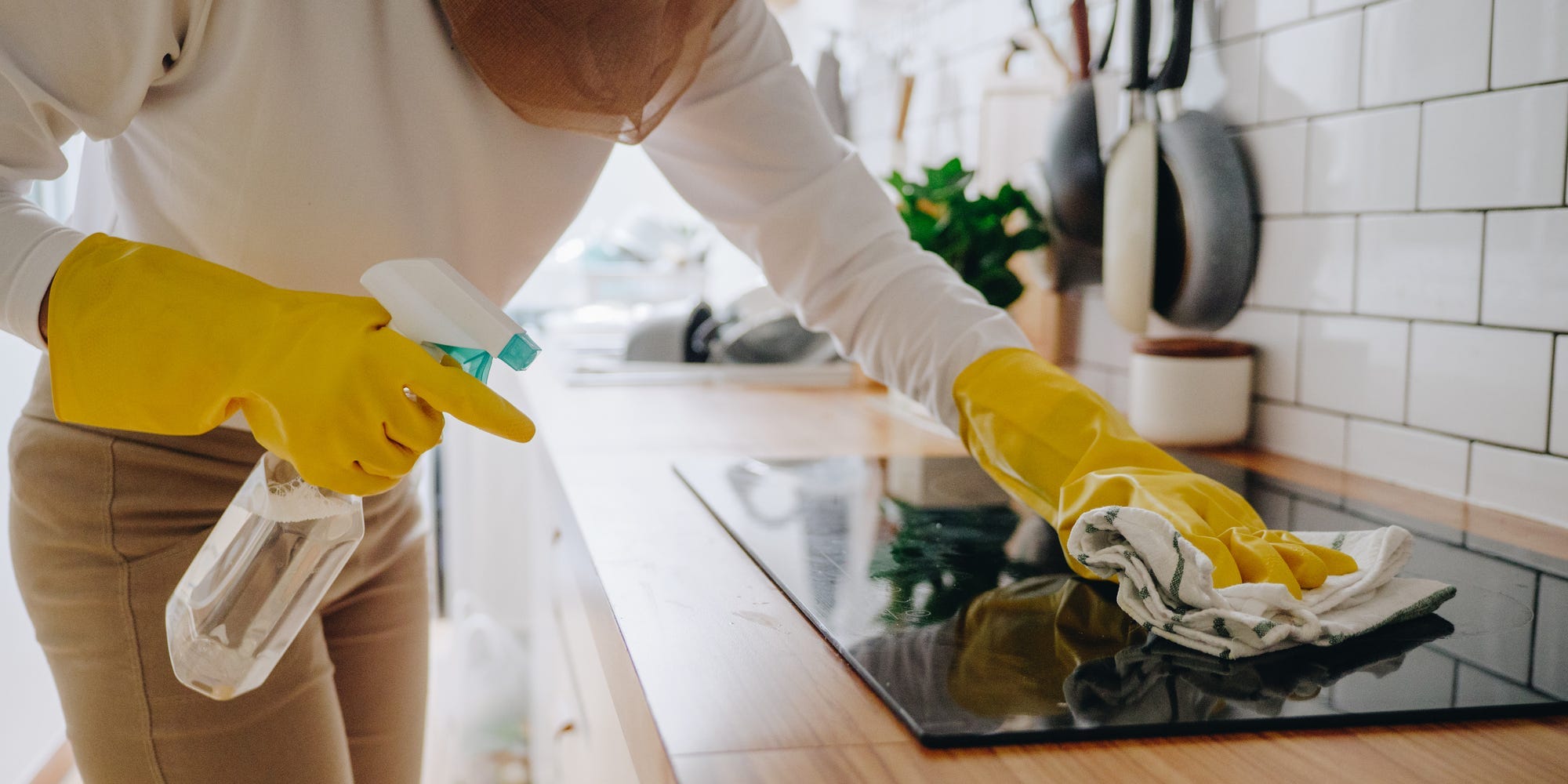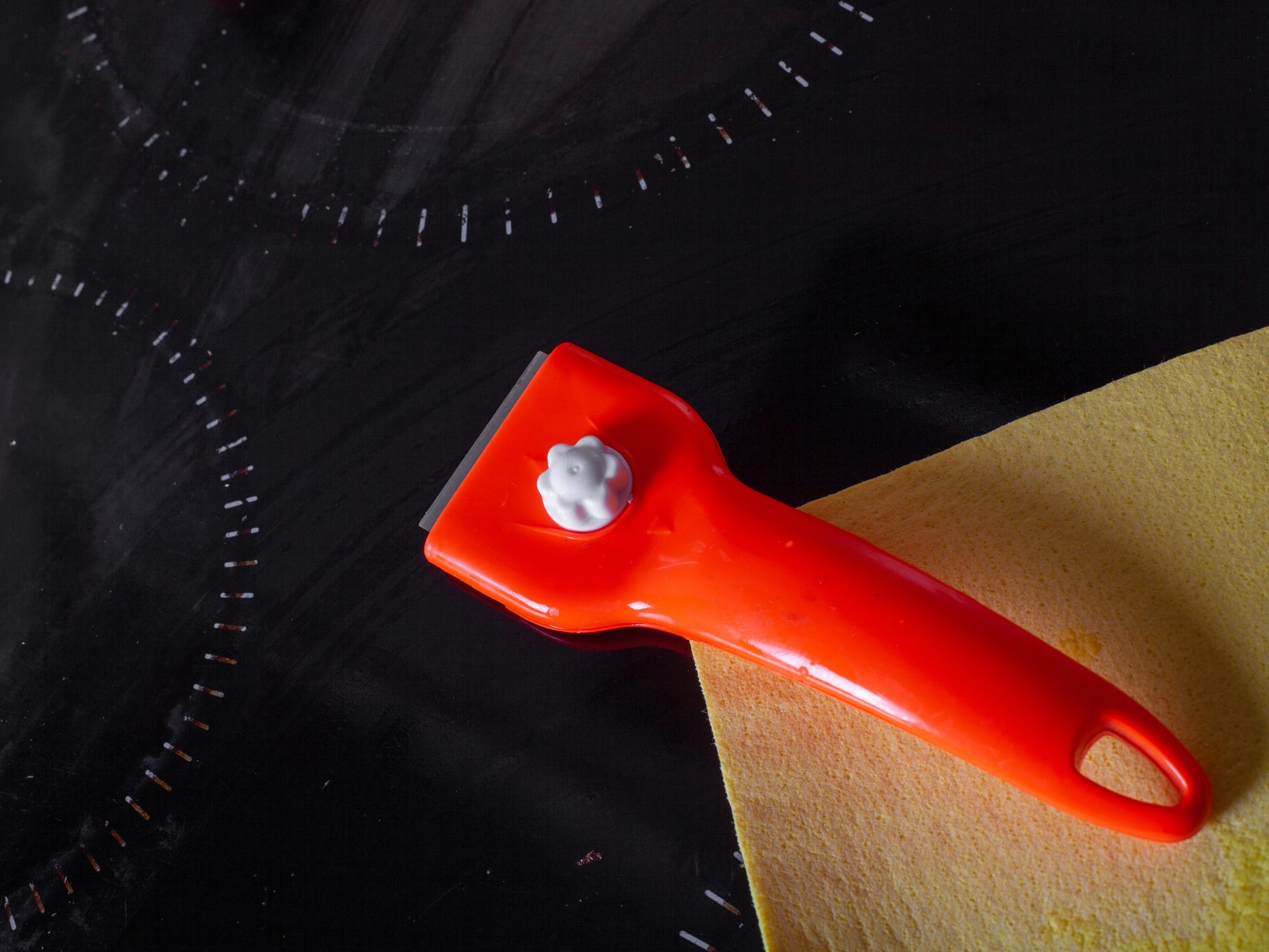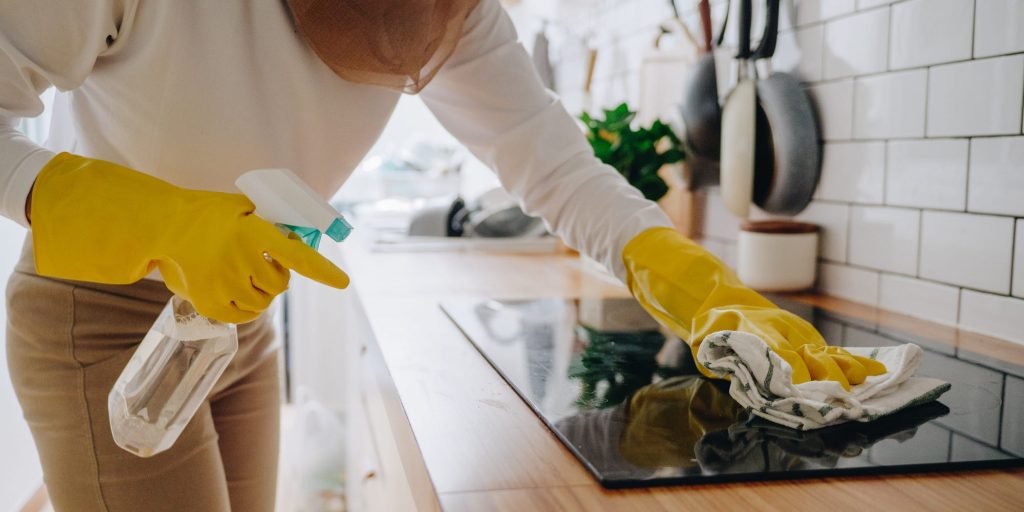
- Baking soda and white vinegar help clear away residue and leave your stovetop looking good as new.
- Instead of a scrubber or paper towel, use a microfiber towel to clean a flat stovetop.
- Avoid using harsh store bought chemical cleaners on a glass stovetop.
- Visit Insider's Home & Kitchen Reference library for more stories.
A sleek glass stovetop blends in effortlessly with most kitchen styles. This type of cooktop, which is actually a mix of glass and ceramic, heats slower than others but often features special burners, like quick boil ones. And, unlike a gas or electric stovetop with coils, the flat design of a glass stovetop is easier to clean, says Leanne Stapf, chief operating officer of The Cleaning Authority.
The surface is also vulnerable to nicks and scratches. That's why it's essential to take care when cleaning this type of stovetop, adds Stapf. Commercially available cleaners are often too harsh to use on glass stovetops and can negatively impact the surface's appearance over time.
Removing stuck-on bits and stains

The method described above should clean a glass stovetop quite thoroughly, but stubborn food bits can be tough to remove.
To remove stuck-on food particles that don't clear away with the vinegar and baking soda method, use a retractable scraper knife.
Carefully scrape at the left-behind residue. Make sure to hold the knife at an angle since scraping head-on can leave behind unsightly scratches. Avoid putting too much pressure on the stovetop to prevent it from cracking. Wipe away residue as you go using a damp microfiber cloth.
Long-term care
Proper glass stovetop care and maintenance go a long way in preserving your appliance and keeping it around for years to come.
Avoid abrasive scrubbers. When wiping down your stovetop, you'll want to avoid abrasive materials, including scrubber pads, textured sponges, and even paper towels, says Stapf. Scratchy materials can leave behind scratches that make a cooktop look dull instead of shiny.
Clean spills right away. "If you leave the spill, it can harden and even burn with multiple uses of the stovetop," says Stapf. Quickly wipe away food that lands on the burners as you're cooking. After the stovetop has cooled down, go through the basic cleaning process outlined above to avoid a permanent stain. Ideally, you should clean your stovetop once a day at the end of the day, Stapf recommends.
Be careful when using heavy cookware. Glass stovetops are convenient and relatively easy to clean, but they're also delicate and susceptible to cracking. Take care when setting down and moving around pots and pans, especially heavy ones made of cast iron.
Insider's takeaway
A glass stovetop is easy to clean, but you'll need the right tools to maintain it. Together, baking soda and vinegar are an effective option for cleaning this type of surface. Harsh cleaners and abrasive scrubbers can leave behind scratches that dull a flat stovetop's surface, so avoid using store-bought chemical cleaners to wipe it down.
